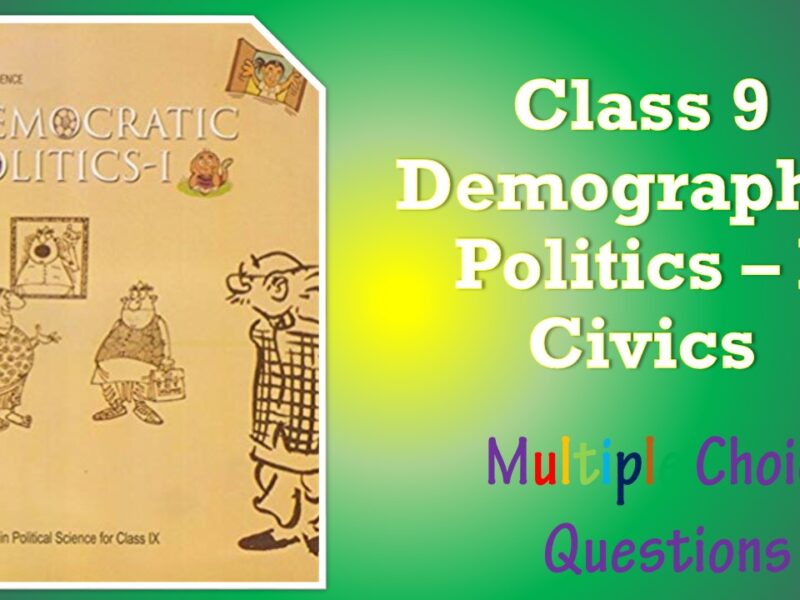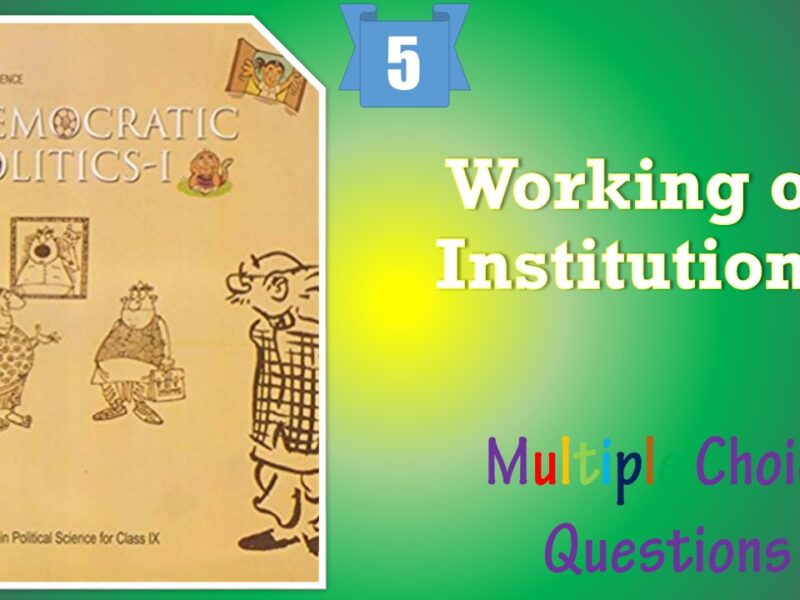CBSE Class 10 Social Science Chapter 5 Popular Struggles and Movements Multiple Choice Questions with Answers. MCQ Class 10 Civics Popular Struggles and Movements with Answers was Prepared Based on Latest Exam Pattern. Students can solve NCERT Class 10 Civics Popular Struggles and Movements MCQs with Answers to know their preparation level.
Students who are searching for NCERT MCQ Questions for Class 10 Civics Popular Struggles and Movements with Answers are compiled here to get good practice on all fundamentals. Know your preparation level on MCQ Questions for Class 10 Social Science with Answers. You can also verify your answers from our provided MCQ Class 10 Civics Popular Struggles and Movements with Answers. So, ace up your preparation with MCQ of Chapter 5 Civics Objective Questions.
MCQ Class 10 Civics Popular Struggles and Movements with Answers - Set - 2
Question 1:
In a democracy, spontaneous public partici-pation becomes effective with the help of
(a) Parliament
(b) Judiciary
(c) Organised politics
(d) Executive
Correct Answer – (C)
Question 2 :
Maoists are people who believe in
(a) absolute monarchy
(b) constitutional monarchy
(c) rule of peasants through armed revolt
(d) democratically elected government
Correct Answer – (C)
Question 3 :
In a democracy direct participation in competitive politics is done by:
(a) forming organisations
(b) promoting interests
(c) contesting elections
(d) mobilising masses
Correct Answer – (C)
Question 4 :
Which of the following is not good for democracy?
(a) Demonstration
(b) Mass mobilization
(c) Multinational company
(d) Political organisation
Correct Answer – (C)
Question 5 :
In most cases the relationship between political parties and interest groups is
(a) direct
(b) not opposed to each other
(c) in dialogue and negotiation
(d) opposed yet in dialogue
Correct Answer – (D)
MCQ Class 10 Civics Popular Struggles and Movements with Answers
Question 6 :
People’s struggle in Bolivia was
(a) to establish democracy
(b) about foundation of country’s politics
(c) against privatisation of water
(d) against privatisation of electricity
Correct Answer – (C)
Question 7 :
Nepal witnessed an extraordinary popular movement in
(a) April 1990
(b) February 2005
(c) April 2006
(d) April 2004
Correct Answer – (C)
Question 8 :
Pressure groups and movements have deepened democracy by
(a) putting pressure on the public
(b) countering undue influence of the government
(c) non-accommodation of conflicting interests
(d) controlling and sharing political power
Correct Answer – (B)
Question 9 :
Which of the following statements is not true about democracy?
(a) Democracy evolves through popular struggle.
(b) Democratic conflict is resolved through mass mobilisation.
(c) Role of popular struggle comes to an end with the establishment of democracy.
(d) Public participation becomes effective with the help of organised politics.
Correct Answer – (C)
Question 10 :
Pressure groups are either formed or led by
(a) Political parties
(b) Trade Unions
(c) Students organisations
(d) Business groups
Correct Answer – (A)
- NCERT Solutions Class 10 Civics Chapter 1 : Power Sharing
- NCERT Solutions Class 10 Civics Chapter 2 : Federalism
- NCERT Solutions Class 10 Civics Chapter 3 : Democracy and Diversity
- NCERT Solutions Class 10 Civics Chapter 4 : Gender Religion and Caste
- NCERT Solutions Class 10 Civics Chapter 5 : Popular Struggles and Movements
- NCERT Solutions Class 10 Social Science Democratic Politics II Textbook



